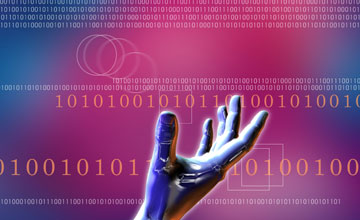 Press Release 11-028
A Scientific Gold Rush: Electronic Mining of Published Research
Press Release 11-028
A Scientific Gold Rush: Electronic Mining of Published Research
 The journal Science publishes an important paper on harvesting vast amounts of "metaknowledge" February 10, 2011 The knowledge of knowledge. The science of science. Riddles? No. A burgeoning and important field of scientific research that examines research itself, say University of Chicago Sociology Assistant Professor James Evans and Post-doctoral Scholar Jacob Foster. Their analysis, supported by the National Science Foundation (NSF), is published in a perspective piece to appear in the Feb. 11 issue of the journal Science.
The Harvest of Knowledge:by Jeff Darling
Take a look at the future: the knowledge of knowledge, Metaknowledge.
Here is the way, for many of those souls who, having the background, ability and desire to find their way to produce the scientific paper or write the article of a lifetime. They do it without spending millions in research money or setting up a fantastic laboratory. No need for anything but a sharp mind and a clear understanding.
There are many of us who wish to contribute to the growing body of science. There are countless of us who blog, do our own study, join groups that work on things together, We learn, of course and we sometimes gather some pretty good info. With these techniques, we can do more than help NASA look at pieces of the Moon, or small patches of the Galaxy in the infra-red. With the correct tools, we can make real discoveries of our own. Maybe instead, we find we really hate that kind of work, but at least we find out before we pour tens of thousands into the verdict. I see this methodology as invaluable.
According to CoAssistant Professor James Evans and Post-doctoral Scholar Jacob Foster Mining the data that have already been gathered by others will be the future. It is pointless to continue grubbing for details for every piece of research. Many times the work of gathering has been done. Better to get to the model of a new truth by going over this research from a different perspective, or maybe combining two sets of work that together make a new set of figures. There
is the metaknowledge future. the future of mining is one I am eager to see.
To find the rest of this NSF story
http://www.nsf.gov/news/news_summ.jsp?cntn_id=118609&org=NSF&from=news
program ContactsJulia I. Lane, NSF (703) 292-5145 jlane@nsf.gov
Related WebsitesPowerful new ways to electronically mine published research may lead to new scientific breakthroughs:http://news.uchicago.edu/news.php?asset_id=2249
NSF's Science of Science and Innovation Policy program:http://www.nsf.gov/funding/pgm_summ.jsp?pims_id=501084
Examples of natural language processing awards:http://www.nsf.gov/pubs/stis1993/nsf93133/nsf93133.txt
| 


No comments:
Post a Comment